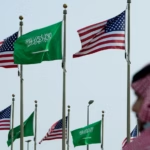As summer approaches, Lebanon is anticipating the return of Gulf tourists, fostering hopes of revitalizing the country’s struggling economy. With Lebanon grappling with its worst financial crisis in decades, the expected influx of Gulf visitors is seen as a potential lifeline, particularly for the tourism and real estate sectors, which have long been pillars of the Lebanese economy. This optimism comes at a time when the country seeks a path toward economic recovery after five years of stagnation.
Hotels, restaurants, and southern coastal resorts are preparing for increased activity, buoyed by the recent decision by the UAE Ministry of Foreign Affairs to lift travel restrictions for its citizens. This policy shift not only enables more Gulf nationals to visit Lebanon but also signals a vote of confidence in the country’s improving security and stability.
According to a report published by Al-Bilad, the resumption of Gulf tourism is being interpreted as a positive economic indicator. Lebanese officials are viewing the renewed interest from Gulf countries as an opportunity to reposition Lebanon as a competitive tourism and investment hub in the Middle East. Analysts suggest that this trend, if sustained, could translate into long-term benefits beyond the tourism sector.
On the ground, the Lebanese public appears hopeful. Locals see the upcoming tourist season as an opportunity to reestablish Lebanon as a major summer destination. Owners of hotels and restaurants in Beirut have reported increasing bookings from the Gulf, with preparations underway to ensure reliable services, particularly electricity, which remains a critical challenge.
Economic analyst Munir Younes notes that the anticipated return of Gulf tourists reflects an improving economic outlook, particularly for sectors closely tied to tourism. These include hospitality, transport, and seasonal festivals. In an interview with Sky News Arabia, Younes emphasized the urgency of Lebanon’s economic need for tourism-generated revenue, especially as traditional economic engines remain dormant.
Tourism experts suggest that the influx of Gulf tourists sends a strong message to international investors, portraying Lebanon as a viable and secure destination. This perception could help reignite organized tourism campaigns in cooperation with the Ministry of Tourism, aviation companies, and travel agencies aimed at attracting both Gulf nationals and expatriate Lebanese.
Nevertheless, challenges remain. The industry suffers from a heavy reliance on foreign labor due to the lower costs compared to local workers. While this provides short-term economic relief, some argue that giving employment priority to Lebanese citizens would ensure that the financial benefits of tourism remain within the local economy.
Younes further explains that tourism income will likely have a ripple effect across other sectors, including agriculture, food industries, and commerce. However, he also cautions that the full economic potential can only be realized if government institutions and the private sector take urgent steps to modernize infrastructure and ensure a seamless experience for visitors.
In the real estate sector, analyst Tarek Al-Sayyed highlighted the enduring interest of Gulf investors in Lebanese property, particularly in the southern coastal areas. He noted that the region still holds high-value properties that appeal to tourists and investors alike, although the recent economic downturn has slowed transaction volumes. Al-Sayyed believes that the return of tourism could revitalize the property market, especially in areas with historical ties to Gulf visitors.
However, Al-Sayyed also warned that infrastructure remains a significant barrier to full economic recovery. Without consistent electricity, water supply, and transportation services—particularly in regions frequented by tourists—it will be difficult to attract sustained investment or stimulate the real estate market.
In conclusion, while Lebanon’s tourism and real estate sectors are positioning themselves for a potential revival driven by the return of Gulf tourists, long-standing infrastructure challenges could limit the scale of the recovery. Addressing these deficiencies will be key to turning seasonal momentum into sustainable economic growth. The coming months may prove pivotal in determining whether Lebanon can leverage tourism as a cornerstone of its broader economic comeback.




